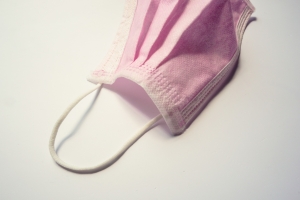Test Your IAQ (indoor Air Quality) IQ
Posted on March 10th, 2021 Although there is little public discussion specifically about indoor air quality (IAQ), the issue is at the heart of many of the current regulations concerning indoor gatherings and business operations. For facility owners and managers, IAQ must be very near the top of the priority list for the safety and comfort of employees and clients. So, how is your IAQ IQ?
Although there is little public discussion specifically about indoor air quality (IAQ), the issue is at the heart of many of the current regulations concerning indoor gatherings and business operations. For facility owners and managers, IAQ must be very near the top of the priority list for the safety and comfort of employees and clients. So, how is your IAQ IQ?
Can you answer the following questions?
1) What is ASHRAE’s* minimum MERV** rating recommended for recirculating HVAC systems in non-healthcare facilities?
- MERV 11
- MERV 13
- MERV 14
- MERV 15
- MERV 17
2) Which of the following can reduce the risks of disseminating infectious aerosols in buildings?
- Air distribution patterns
- Differential room pressurization
- Personalized ventilation
- Controlling temperature and relative humidity
- All of the above
- B and D only
3) To minimize aerosol concentrations, it is worth considering manually increasing outdoor air ventilation to 100% in non-healthcare facilities when:
- Outdoor air temperature is between 50° and 90°F
- The level of infectious aerosols is high
- Indoor and outdoor conditions permit
- The humidity level falls below 45%
- All of the above
- None of the above
4) The effectiveness ultraviolet germicidal irradiation (UVGI) in inactivating or killing infectious aerosolized pathogens can be affected by:
- Lamp (light) intensity
- Dwell time
- Temperature
- Humidity
- Airflow (CFM)
- All of the above
5) Which of the following are widely used for particulate removal?
- Upper-room UVGI
- Chemical disinfectants
- Vaporized hydrogen peroxide
- Pulsed xenon
- All of the above
- None of the above
6) HEPA filters were first developed in the 1940s to minimize the spread of:
- Poisonous gas
- Bacteriological agents
- Radioactive contaminants
- Smoke particles
- All of the above
- None of the above
7) Which of the following techniques are used to control the spread of airborne pathogens in healthcare settings?
- Positive pressure
- Negative pressure
- Neutral pressure
- A & B
- All of the above
- None of the above
8) When considering a portable HEPA air filtration unit, which are the most important characteristics?
- Fan motor size
- Location of inlet and exhaust openings
- Size of the HEPA filter
- Exhaust air volume flow and distribution
- All of the above
- None of the above
9) HEPA filters are poor at removing particles smaller than 0.3 microns in diameter: True or False?
10) A mechanical air filter’s overall effectiveness of reducing particle concentrations depends on which of the following factors?
- Filter efficiency
- Airflow rate
- Particle size
- Location in the HVAC system
- All of the above
- None of the above
* ASHRAE – American Society of Heating, Refrigerating and Air-Conditioning Engineers
** MERV – Minimum Efficiency Reporting Value
Click below for the answers:
